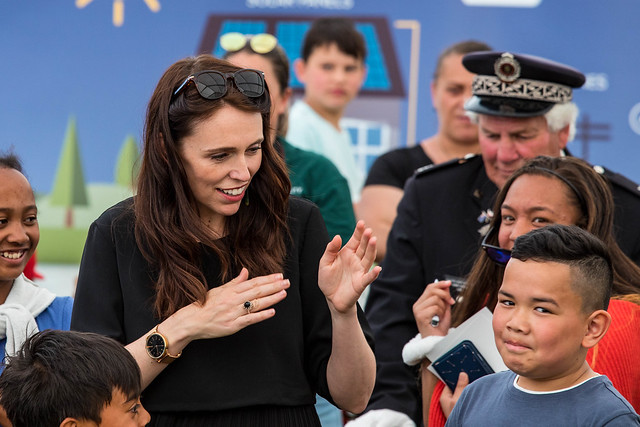Unlock the Magic in Your Story Now
Get the Free 20 questions to Ask Before Launching Your Idea workbook when you sign up for occasional updates.
Get the Free 20 questions to Ask Before Launching Your Idea workbook when you sign up for occasional updates.
Articles filed in: Marketing
Marketing Advice
filed in Marketing, Storytelling, Strategy

We’re on our way to buy that forgotten pint of milk late one weekday evening when we spot a brand new restaurant. So, we stop to take a look at the menu in the window.
Inside the place is deserted, apart from two smiling waitresses, stationed behind the double glass doors and one anxious owner polishing unused glasses behind the bar. Before we know it, Sam, the owner, is standing outside the door next to my husband and me, asking us if we’ve had dinner yet.
We can see the fear in his eyes. He looks like an expectant father pacing the floor of the delivery room. It’s been two weeks since they opened and apart from weekends, the place is deserted most nights. Sam tells us how proud he is of the food and how hard they’ve all been working on getting the restaurant open. But we can see that his optimism is waning. He’s beginning to think this might not work. He was convinced if he built it, people would come. But now he’s not so sure, and he doesn’t know what to do next.
What would you do if you were Sam?
What’s the best marketing advice you can give him?
How are you following this advice in your own business?
Image by Garry Knight
Message Received
filed in Marketing, Storytelling

How much time will you spend today trying to persuade the people you hope to serve?
How much effort will you devote to understanding how your message was received?
Your job is to do more than to ask for feedback—it’s to test for resonance.
You must pay attention to both what your customers say and what they do.
Marketing is more than broadcasting. It’s the nurturing of a relationship.
Image by Garry Knight
Words And Deeds
filed in Marketing, Storytelling, Strategy

When we moved to our neighbourhood, the independent organic grocer was a community hub. The sales staff knew locals by name. The fruit and vegetables were plentiful and fresh. And customers were offered food tastings every day.
And then bit by bit things started to change. The owner opened a store in a neighbouring suburb, and it was clear that his focus shifted. The first thing to go were the food tastings. The vegetables didn’t get restocked as often, and the cafe closed early. One-by-one, the regular staff began to leave. Customers no longer experienced the joy of shopping there, and so they left too.
The store was in the same building, using the same suppliers.
The name over the door hadn’t changed, but the story had.
Our story isn’t just what we tell people. Our story is everything we do.
Image by Garry Knight
If You Want To Be Noticed, Start Noticing

We’re always looking for ways to get our customers to notice us.
We spend time thinking about what new marketing channels we could explore.
We work on strategies to get us more exposure.
We test tactics that might improve our reach.
What would happen if we shifted some of our energy to noticing our customers?
How would that change the strategy we formulate, the tactics we use and the impact we make?
Image by Garry Knight
Bolder, Braver, Better Marketing
filed in Marketing, Storytelling

How would you find more customers if you couldn’t use traditional marketing methods? If you couldn’t do any print, radio or TV advertising or use the digital levers we’ve become so used to relying on as a way to drive business growth. Where would you start?
My guess is you’d start with people. You’d double down on serving the customers you already had and talk with, not at, people who were not customers yet. You’d get very good at explaining what you do and how it helps your customers.
You’d become an expert at looking people in the eye. You’d be bolder, braver, better. You’d make your own magic.
It’s not rocket science, yet it’s something we’ve neglected in our digital age.
This is how most businesses marketed themselves fifty years ago. By making the best possible product, for customers they knew and cared to serve. We moved away from that brave marketing model and in many ways, that shift has been to our detriment. Our focus on efficiency and scaling has taken us further away from our customers and made us less courageous marketers.
Is your marketing mindset limiting your ability to connect with and serve your customers better?
Image by Garry Knight
Everyone Speaks

If you search ‘best breakfast in Hobart’ on Trip Advisor, you’ll find a tiny, backstreet cafe in the number one spot. This cafe opens for six hours each day, only seats a dozen people and has a queue of eager diners waiting outside before it opens. It’s the kind of place the people who visit go out of their way to find.
What’s the big draw? The cafe is designed so diners can sit at the bench and interact with the chef while he cooks their delicious breakfast. People are not just going to eat amazing food. They’re coming for the theatre and the feeling of intimacy.
The chef is the star of the show. But it’s not just the chef’s performance that matters. How every member of the team welcomes and serves people makes or breaks the experience. Everyone’s actions speak for the brand. So when the waitstaff don’t smile or scold diners for moving into their workspace, it breaks the spell and kills the magic.
Everyone, no matter how visible, who has a hand in creating the customer experience, speaks for your brand. It isn’t only the star of the show who tells the story.
Image by Marchaud Wittouck
Fabled Or Found?
filed in Marketing, Storytelling

Every week, my favourite bookstore restocks the shelves at the front of the store with new releases. And every time I go there, I think the same thing. What are the chances of any book—no matter how good, being found here?
The truth is, the books that sell are the ones that people come into the store knowing they are going to buy. The book that’s been recommended. The thing they’ve already heard about.
Breakthrough ideas and bestselling products are rarely stumbled upon.
They are recommended—passed from person-to-person.
Our job isn’t to be found. It’s to make something worth talking about.
We do that by understanding who we do our best work for and why—then creating something those people love.
Image by Germán Poo-Caamaño
Don’t Manipulate Me, Move Me
filed in Marketing, Storytelling, Strategy

There’s a difference between a good story and a great story.
A good story gets our attention. A great story changes us.
Successful marketing campaigns and brand stories don’t convince us.
They move us.
A good leader gets our vote, and sometimes, our respect.
A great leader gains our loyalty, and often, our love.
We don’t have to be smart enough to manipulate people to act.
We have to be sincere enough to move them to act.
Image by Nevada Halbert
The Two Rules Of Good Marketing
filed in Marketing, Story Skills, Storytelling

The best marketing does two things:
1. It empowers people to make decisions now that they won’t regret later.
2. It helps people to do the things they want to do.
If you’re helping the people you serve to do both of these things, you can proudly say you’re a good marketer.
Image by Eric Shoniya
Build A Trust Engine
filed in Marketing, Strategy, Success

In the golden age of the advertising businesses of all sizes relied on ads to promote and sell their products. Giant corporations reached us via TV and whole page newspaper ads. Small businesses got our attention by placing small ads in the local newspaper. In the past advertising allowed average products to gain traction. Now we block and ignore.
When conventional advertising became less effective, many businesses migrated to social media platforms. The promise was that targeted promotion would enable us to reach more customers for close to free. While it’s easier to target and reach prospective customers, there is no guarantee that more people will be won over. That doesn’t stop us spending the majority of our resources trying to reach potential customers, and relatively few to convert or retain them. According to Econsultancy, for every $92 we allocate to creating awareness, we spend $1 on converting the customer.
How could we invest our resources wisely?
As is often the case the clues lie in understanding what’s unchanging about people. We still buy things the people we trust are buying. We eat in the places our friends tell us serve good food. We know where to get the best coffee because our neighbours tell us. We do things we see others doing. We always have done. We always will do.
Lasting success isn’t built around launching one PR campaign after another. It’s powered by trust. Whenever you see a business that’s endured look for the trust engine that’s driving its success.
How To Build A Trust Engine
1. Care more than the competition.
2. Make the best product.
3. Give your customers a story to tell.
4. Make it easy for them to tell that story.
In the quest to do work we’re proud of trust trumps awareness every time.
Image by Spyros Papaspyropoulos